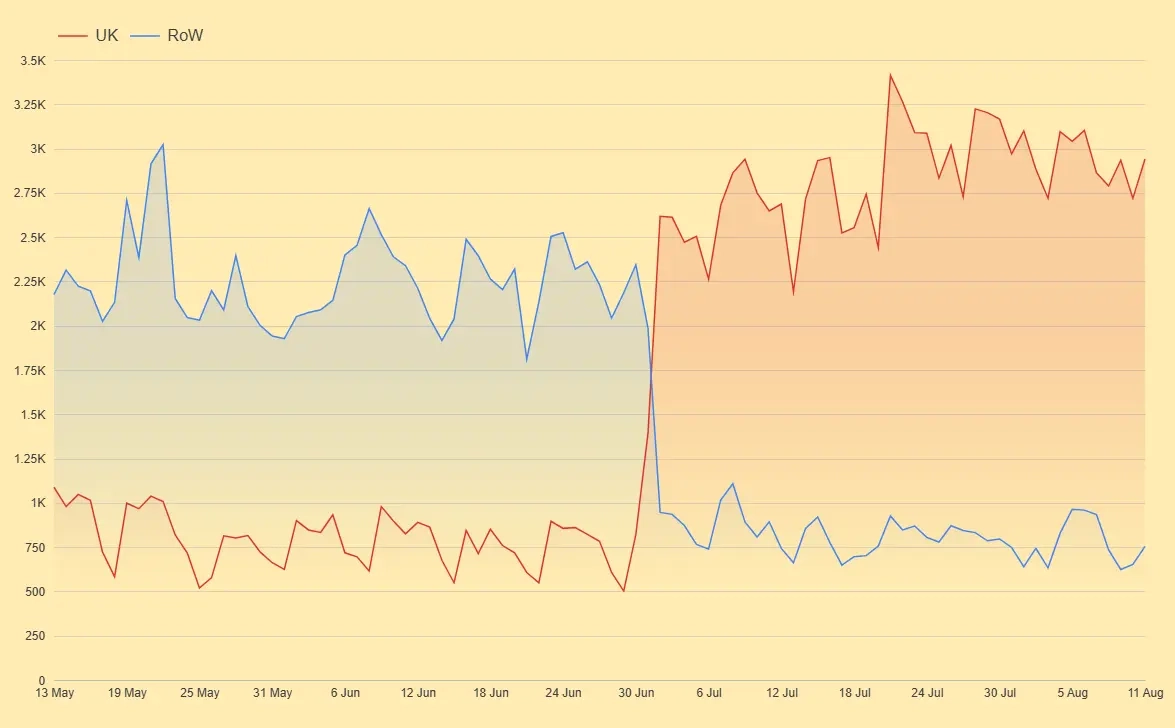As anyone with an ounce of common sense saw coming, the new Online Safety Act has resulted in numerous workarounds to avoid the age-verification methods implemented by (mostly overseas) websites. Either because the user is actually under the age of 18 or because they have (not unwarranted) privacy concerns.
What is the Online Safety Act?
Essentially, it’s an attempt by the UK government to enforce age restrictions on websites around the world that are deemed by the government as being unsuitable for children. Gone are the days of a pop-up asking if you’re 18, which you have to click “yes” on before proceeding. Now there are a number of ways to prove that you’re 18. Either submitting photo ID or using AI analysis of a provided selfie are the most common.
Of course, all of this has appeased the cries of “won’t somebody think of the children” despite the fact that the children, being far more tech savvy than the people who drafted this law, are quite happily finding ways around the digital blockade to go back to enjoying adult material. A situation set against the backdrop of a clamour of voices complaining about the intrusion on civil liberties, potential nanny-statism, big brother watching the UK population's every move online, and websites hosting of some of the very worst content on the internet ignoring the dictat from Westminster entirely.
How this is going to inadvertently affect businesses is that it is driving a serious uptick in VPN usage.
Virtual Private Networks
A Virtual Private Network (VPN) is essentially a remote connection to the internet. You connect to the VPN, and suddenly, all of your browsing is coming through a second machine hosted somewhere else in the world. This is a well-established technology that has been used for decades to circumvent oppressive regimes and their censorship, or as a security measure.
VPNs are apparently the most popular apps within the UK at the moment, with downloads increasing almost 20 times by the end of July. These are allowing anybody to simply avoid the UK’s restrictions by pretending to be from a completely different country. If your chosen adult website has age restrictions only for UK visitors (or are simply blocking all UK traffic entirely), the simplest solution is to connect to it via a VPN that tells the website that you’re actually visiting from the USA.
The problem for people trying to sell online is that once you’ve installed a VPN, it’s probably easier to just leave it turned on. So, that user is constantly apparently elsewhere on the planet. This means things like geographically targeted ads will miss them. Your SEO, which thanks to Google’s recent June 2025 Core Update, is now even more tightly focused on your domestic audience, is more likely to be entirely missed by this user.
What to do?
Well, at the moment, we’re monitoring the situation. There’s currently nothing that appears to be overly problematic as yet, and although it is a growing situation, at the moment it’s not one that’s affecting us. It does help that none of our clients are marketing towards children, so that means that the lion’s share of these new VPN users aren’t going to be in our target audiences anyway.
For paid search advertising, it’s simple enough to adjust the geographical targeting, but it’s something that we need to be very careful about doing. Google have recently mentioned that they’re introducing a new option for this, “interest.” Previously, we only had “presence” (someone physically in the target region) or “presence or interest” (someone physically in the target region or showing interest in that region).
This means we can focus on “interest” in the UK as a targeting option and hopefully only get clicks from people who are actually looking for goods and services in the UK. It’s not that simple, of course, it does mean we’re going to get a lot of useless searches triggering our ads, so we’ll need to work on ad copy and other friction to reduce what unwanted overseas traffic we’re getting.
SEO is another matter entirely, so we’ll just have to see what impact it has (if any) and then what Google’s response might be. Of course, it’s also likely to result in a shift in user search behaviour. Expect to see an upswing in “UK” appended to search queries.
It’s possible that this will cause issues with audience data, meaning we’re going to see issues with retargeting and social media advertising. Expect to see more irrelevant ads on pretty much every website you use, if you choose to opt for a VPN.



